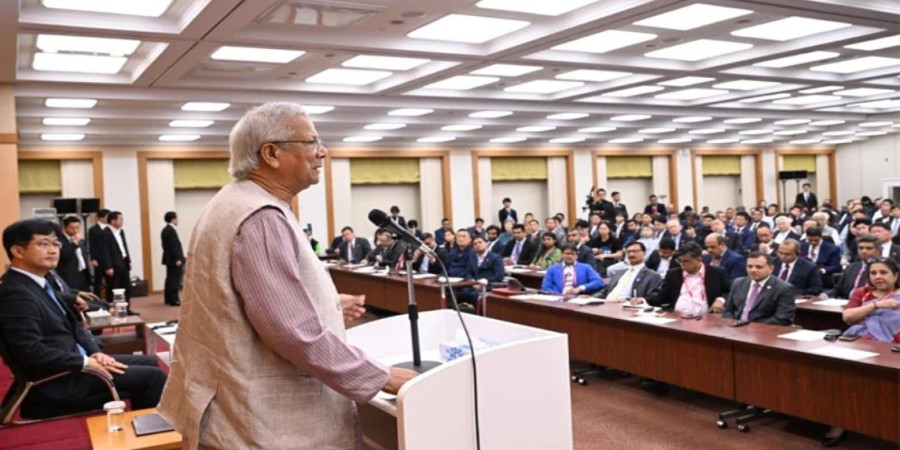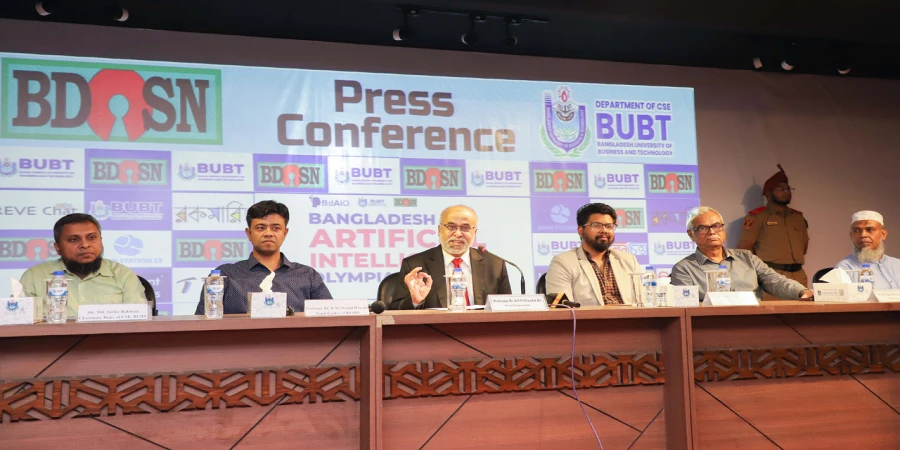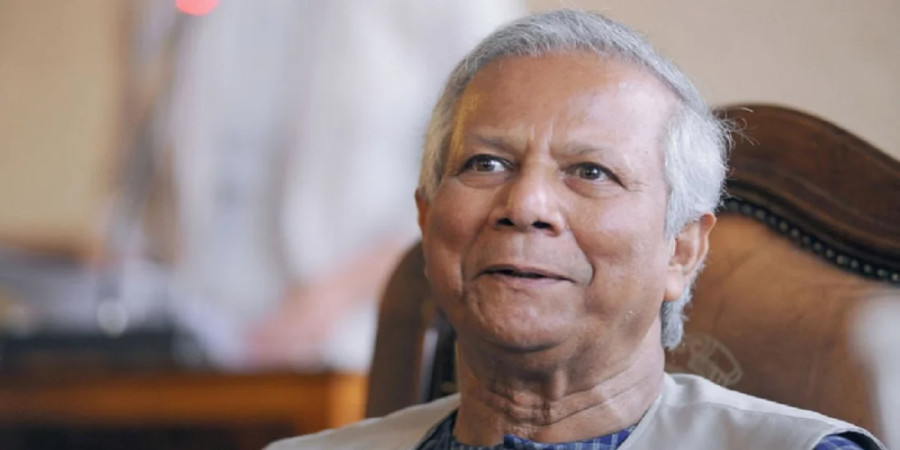
ছবি: Photo: Collected
Authorities and business leaders in Tokyo express growing interest in Bangladeshi labor amid Japan’s worsening workforce shortage
To address Japan’s growing labor shortage, Japanese authorities and business leaders have announced plans to recruit at least 100,000 workers from Bangladesh over the next five years. The announcement came during the "Bangladesh Seminar on Human Resources" held in Tokyo on Thursday.
Speaking at the event, Chief Advisor Professor Muhammad Yunus emphasized the importance of creating employment opportunities for Bangladeshis in Japan. He assured that the interim government would take all necessary steps to facilitate this process. Professor Yunus described the occasion as one of the most exciting and inspiring days of his life, highlighting that this initiative is not merely about job opportunities but also about opening a cultural gateway for the people of Bangladesh to engage with Japan.
During the seminar, two Memoranda of Understanding (MoUs) were signed. The first was between the Bureau of Manpower Employment and Training (BMET) of Bangladesh and Kaicom Dream Street (KDS), a Japan-Bangladesh joint venture. The second MoU involved BMET, the National Business Support Combined Cooperatives (NBCC)—a federation of over 65 companies in Japan—and Japan-Bangla Bridge Recruiting Agency (JBBRA).
Professor Yunus noted that the event symbolizes the opening of a new door. He stressed that Bangladesh, with a population of around 180 million—half of whom are under the age of 27—holds great potential. He remarked that it is the government's responsibility to open opportunities for this young population.
Mitsuru Matsushita, Representative Director of the Shizuoka Cooperative for Work Environment Improvement, observed that many Japanese companies have shown interest in Bangladeshi workers and that this interest is likely to continue growing. He praised the potential of Bangladeshi talent and affirmed the responsibility to nurture their abilities.
NBCC Chairman Mikio Kesagiyama recalled Professor Yunus's earlier visit to Japan around 14 years ago, when he spoke about empowering women through microfinance. He said that his federation sees Bangladesh as a promising source of young and skilled workers, capable of contributing to the development of both nations. He reaffirmed their readiness to welcome 100,000 Bangladeshi workers over the next five years.
Miki Watanabe, President of the Watami Group, mentioned that a school they established in Bangladesh currently trains 1,500 students annually, with plans to expand that number to 3,000. He stated that graduates from technical education institutions in Bangladesh will be well-positioned to enter Japan's job market.
Hiroaki Yagi, Chairman of the Japan International Trainee and Skilled Worker Cooperation Organization (JITCO), discussed both the opportunities and challenges for Bangladeshi workers in Japan. He pointed out that a major obstacle remains the shortage of language teachers in Bangladesh, which affects the preparedness of potential workers.
Japan’s Vice Minister of Health, Labour and Welfare, Niki Hirobumi, highlighted the urgent need for foreign labor due to Japan’s declining population. He emphasized that support from Bangladeshi workers could play a vital role in addressing this demographic challenge and stated that this collaboration is promising not only for Bangladesh but also for Japan.
In his welcome address, Bangladesh’s Ambassador to Japan, Md. Daud Ali, projected that Japan may face a labor shortage of up to 11 million by 2040. He expressed optimism that Bangladesh could seize this opportunity to provide more skilled workers to Japan and strengthen bilateral cooperation through workforce development.
repoter





